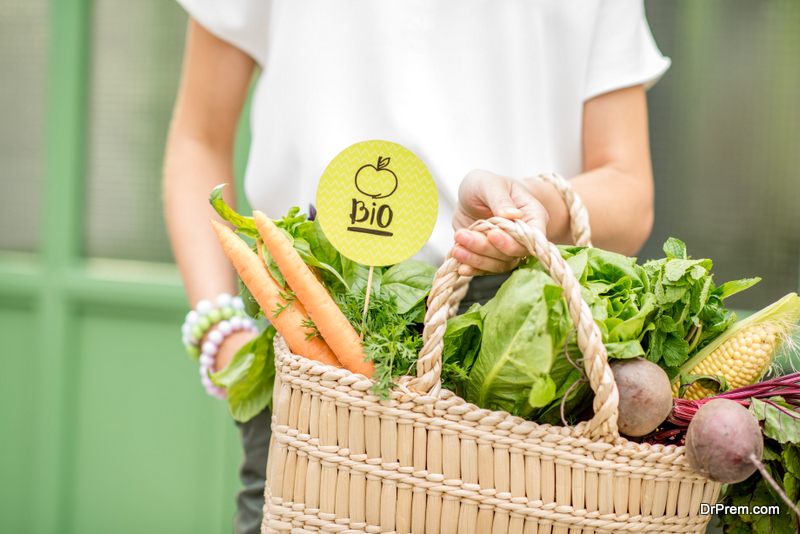Most retail businesses can embrace a significant amount of eco-friendly policies to limit waste, increase sustainability, and preserve the environment. In the food industry, however, it’s not that easy.
If you currently run, or are considering opening an eco-friendly food business, your efforts will be challenged. The following tips will prepare you to meet those challenges:
1. Market your business to appeal to eco-friendly crowds
Consumers from the green crowd aren’t your average consumers. Eco-friendly enthusiasts will gladly pay more for products and drive further when they know a business is going out of their way to be green. You might be going out of your way, but do you know how to convey that message to your eco-friendly market? Do you know how to be appropriately transparent to prove your claims?
With basic marketing skills learned online, you can probably reach the general population, provided your product is good. However, if your market consists of earth-conscious people who pride themselves on striving for a zero-waste lifestyle, you need professional training.
To maximize the receipt of your message, look into obtaining a degree in business administration with an emphasis on marketing and management. The eco-friendly crowd isn’t a tough market, but you’ll need advanced marketing strategies to reach them.
2. Don’t fall for conscience-soothing gimmicks
There are a number of eco-friendly gimmicks on the market. Some of these gimmicks are products with good intentions that simply lack supporting infrastructure to make good on their claims. For example, you’ve probably heard about compostable silverware made from plants. It’s a great idea, but it doesn’t work the way it sounds. Great effort (and money) is required to compost these bio-plastics.
Compostable silverware will only biodegrade when its processed at extremely high heat at an industrial composting facility. The average person (or business) can’t compost these so-called biodegradable utensils. Even if you could break down bio-plastics in your backyard, you wouldn’t want the remaining substance in your garden. Bio-plastic breaks down into sticky debris that has no nutritional value for plants.
Biodegradable silverware is worse than plastic, according to Céline Jennison, founder of Plastic Tides. Bio-plastic isn’t really plastic so it can’t be recycled or it will cause problems in the waste stream. Jennison says that when she was an undergrad at Cornell University, the city of Ithica banned people from putting compostable utensils into recycle bins; workers were spending too much time and effort pulling them out.
If you’re not collecting compostable utensils to send to an industrial composting facility, you have to put them in the trash, which leads to another problem: landfills are designed to prevent decomposition.
You read that right – landfills are designed to prevent decomposition. This little fact has been well-disguised for years, but it’s true. Nothing in a landfill breaks down, including vegetables and definitely not compostable silverware.
How to make compostable silverware work
 If you’re going to provide compostable silverware, you need a supporting program that collects the silverware from your patrons. If you’re providing disposable silverware for takeout, you’ll need a program that incentivizes the return of compostable silverware. Nobody’s going to drive their fork back to your business when they’re done eating.
If you’re going to provide compostable silverware, you need a supporting program that collects the silverware from your patrons. If you’re providing disposable silverware for takeout, you’ll need a program that incentivizes the return of compostable silverware. Nobody’s going to drive their fork back to your business when they’re done eating.
You could also connect with other like-minded businesses to split the cost of industrial composting fees and incentivize the return of biodegradable utensils. Such a program would be similar to the way grocery stores collect single-use plastic bag outside their stores.
3. Find out what other food businesses are doing
Whether you’re a coffee shop, a restaurant, or a fast food joint, research to find out what others are doing to control waste and minimize environmental impact. For instance, a survey of restaurant owners found that the majority have adopted energy-saving equipment and practices as part of standard operations. Find out what they do and emulate their policies.
The same survey found that 56% of operators buy certified compostable supplies. However, remember that using compostable supplies requires you to send those supplies to an industrial composting plant.
4. Use local food first
Where you get your food from matters. Food processing in the U.S. has become an international affair. For instance, seafood and chicken are regularly shipped to China for processing. Safety issues aside, transporting food to (and from) another country just to save money is a waste of fuel and other resources.
Serving local, organic food appeals to the eco-friendly market because they want to support local farmers and eliminate unnecessary use of oil. If you look, you’ll find plenty of local farmers ready and willing to sell their food.
Be open to change
The market for eco-friendly food establishments is quite large, but sometimes unpredictable. Sustainability is an ever-evolving process. Be open to change depending on consumer demand and be willing to do whatever it takes to earn respect from your patrons. Success in the food industry hinges on customer satisfaction.
Article Submitted By Community Writer




